METSEPM2210
EasyLogic PM2210, Power & Energy meter, Total Harmonic, LCD display, Pulse, class 1
- Stock status:
- In stock
- Manufacturer:
- Schneider
- Product code:
- METSEPM2210
Main documents
| Range | EasyLogic |
|---|---|
| Product name | EasyLogic PM2200 |
| Device short name | PM2210 |
| product or component type | Power meter |
| Device application | Sub billing Power monitoring |
|---|---|
| Power quality analysis | Total harmonic distortion |
| Type of measurement | Apparent power min/max, total Active and reactive power min/max, total Current min/max, avg Voltage min/max, avg Frequency min/max, avg Total current harmonic distortion THD (I) per phase Total voltage harmonic distortion THD (U) per phase Power factor min/max, avg Apparent energy total Active and reactive energy total |
| Metering type | Voltage U, U21, U32, U13, V, V1, V2, V3 Unbalance current Calculated neutral current Apparent power S, S1, S2, S3 Peak demand currents Current I, I1, I2, I3 Active, reactive, apparent energy (signed, four quadrant) Active power P, P1, P2, P3 Reactive power Q, Q1, Q2, Q3 Peak demand power PM, QM, SM Demand power P, Q, S |
| Accuracy class | Class 1 active energy conforming to IEC 62053-21 Class 1 reactive energy conforming to IEC 62053-24 |
| Measurement accuracy | Apparent power +/- 1 % Active energy +/- 1 % Reactive energy +/- 1 % Active power +/- 1 % Voltage +/- 0.5 % Power factor +/- 0.01 Current +/- 0.5 % Frequency +/- 0.05 % |
| Measurement current | 5…6000 mA |
| Measurement voltage | 35…480 V AC 50/60 Hz between phases 20…277 V AC 50/60 Hz between phase and neutral 480…999000 V AC 50/60 Hz with external VT |
| Frequency measurement range | 45…65 Hz |
| [Us] rated supply voltage | 44…277 V AC 45…65 Hz +/- 10 % 44…277 V DC +/- 10 % |
| Network frequency | 60 Hz 50 Hz |
| Ride-through time | 100 ms 120 V AC typical 400 ms 230 V AC typical 50 ms 125 V DC typical |
| [In] rated current | 1 A 5 A |
| Maximum power consumption in VA | 6 VA at 277 V AC |
| Maximum power consumption in W | 3.3 W (power lines (AC)) 2 W at 277 V (power lines (DC)) |
| input impedance | Current (impedance <= 0.3 mOhm) Voltage (impedance > 5 MOhm) |
| Tamperproof of settings | Protected by access code |
| Display type | Backlit LCD |
| Display colour | Monochrome |
| display resolution | 128 x 128 pixels |
| Demand intervals | Configurable from 1 to 60 min |
| Information displayed | Demand current (past value) Demand current (present value) Demand power (past value) Demand power (present value) Voltage Current Frequency Energy consumption Harmonic distortion Power factor Active power Apparent power Reactive power Unbalanced in % Harmonic amplitude |
| Control type | 4 x button |
| Local signalling | Red LED: output signal 1…9999000 pulse/ k_h (kWh, kVAh, kVARh) Green LED: module operating (RUN) |
| Number of inputs | 0 |
| Number of outputs | 1 pulse |
| POP parameter | Pulse: 20 ms (5…40 V DC, 20 mA max)1…9999000 pulse/ k_h (kWh, kVAh, kVARh) |
| impulse duration | 20 ms |
| Communication port protocol | POP |
| Sampling rate | 64 samples/cycle |
| Cybersecurity | Enable/disable communication ports |
| communication service | Remote monitoring |
| User language | German English Chinese Russian Spanish Portuguese French |
| Product certifications | CE conforming to IEC 61010-1 CULus conforming to UL 61010-1 CULus conforming to CSA C22.2 No 61010-1 RCM EAC C-Tick |
| mounting mode | Clip-on |
| Mounting position | Vertical |
| Mounting support | Framework |
| Provided equipment | 1 x installation guide |
| Measurement category | Category III 480 V Category II 480…600 V |
| Electrical insulation class | Class II Double insulation |
| Flame retardance | V-0 conforming to UL 94 |
| Connections – terminals | Current transformer: screw connection (bottom) 6 Voltage inputs: screw connection (top) 4 |
| Material | Polycarbonate |
| Width | 96 mm |
| Depth | Total : 76.09 mm Embedded : 61.64 mm |
| Height | 96 mm |
| net weight | 300 g |
| Compatibility code | PM2210 |
| Service life | 7 year(s) |
|---|---|
| IP degree of protection | IP54 front: conforming to IEC 60529 IP30 body: conforming to IEC 60529 |
| Relative humidity | 5…95 % at 50 °C |
| Pollution degree | 2 |
| Ambient air temperature for operation | -10…60 °C |
| ambient air temperature for storage | -25…70 °C |
| Operating altitude | <= 2000 m |
| Electromagnetic compatibility | Electrostatic discharge conforming to IEC 61000-4-2 Radiated radio-frequency electromagnetic field immunity test conforming to IEC 61000-4-3 Electrical fast transient/burst immunity test conforming to IEC 61000-4-4 Surge immunity test conforming to IEC 61000-4-5 Conducted RF disturbances conforming to IEC 61000-4-6 Magnetic field at power frequency conforming to IEC 61000-4-8 Voltage dips and interruptions immunity test conforming to IEC 61000-4-11 Emission tests conforming to FCC part 15 class A |
| Overvoltage category | III |
| Unit Type of Package 1 | PCE |
|---|---|
| Number of Units in Package 1 | 1 |
| Package 1 Height | 11.94 cm |
| Package 1 Width | 11.94 cm |
| Package 1 Length | 9.14 cm |
| Package 1 Weight | 0.37 kg |
Product Description
Schneider Electric
Schneider Electric is a multinational corporation specializing in energy management and automation solutions. With operations in over 100 countries, the company offers a wide range of products and services for various industries, including residential, commercial, and industrial.
Schneider Electric is focused on sustainability and innovation, aiming to help their customers manage energy efficiently and reduce their environmental impact.
Schneider Power Meters
Schneider Electric offers a comprehensive range of power meters designed to provide accurate monitoring, measurement, and management of electrical power in industrial, commercial, and residential settings. These power meters are essential for improving energy efficiency, reducing costs, and ensuring reliable power quality.
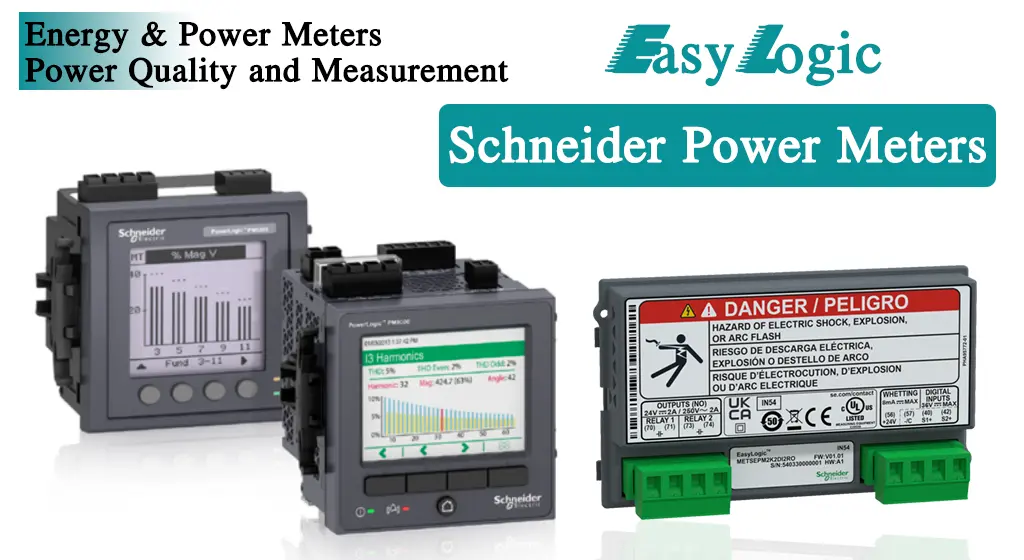
EasyLogic
The EasyLogic range from Schneider Electric offers cost-effective and reliable power meters designed for energy management and monitoring in commercial and industrial applications. These power meters are engineered to provide essential measurements and data, aiding in energy efficiency and operational optimization.
Key Features and Benefits:
Essential Measurement Capabilities:
Provides accurate measurements of key electrical parameters such as voltage, current, power, energy, and frequency.
Suitable for basic energy monitoring and management needs.
User-Friendly Interface:
Features easy-to-read displays and simple navigation, making it accessible for users with various levels of technical expertise.
Provides clear and concise information to facilitate quick decision-making and troubleshooting.
Cost-Effective Solution:
Designed to offer a balance between functionality and affordability.
Ideal for applications where advanced features are not required, focusing on core measurement and monitoring capabilities.
Versatile Applications:
Applicable in commercial buildings, small to medium-sized industrial facilities, and other environments requiring basic energy monitoring.
Supports energy audits, load management, and basic power quality monitoring.
Easy Integration and Installation:
Compact design allows for easy installation in existing panels and systems.
Compatible with common communication protocols such as Modbus, enabling integration with building management systems (BMS) and energy management platforms.
Improved Energy Efficiency:
Helps identify areas of energy waste and inefficiency, contributing to overall energy savings.
Facilitates better energy usage practices through monitoring and analysis.
Compliance and Reliability:
Adheres to relevant international standards and certifications, ensuring reliable performance and safety.
Designed for durability and longevity, even in demanding environments.
METSEPM2210
The Schneider Electric EasyLogic PM2210 (product code METSEPM2210) is a robust power and energy meter designed for detailed monitoring and measurement of electrical parameters. Here are the key features and specifications of this device:
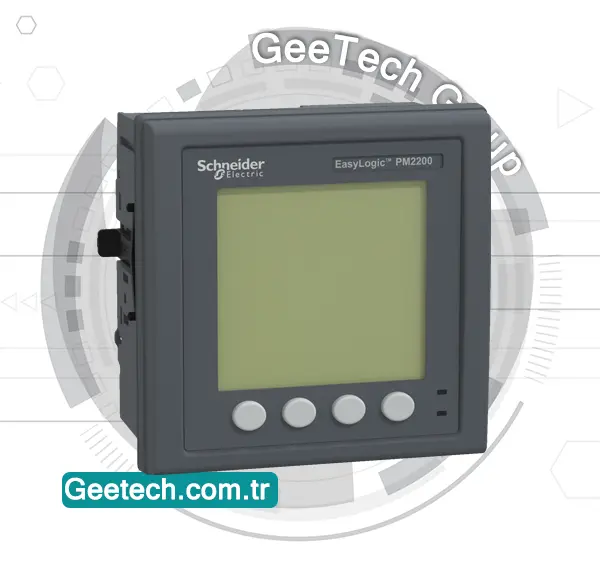
Key Features:
Backlit LCD Display: The meter is equipped with a 128 by 128 pixels backlit LCD display, ensuring clear visibility of readings.
Accurate Energy Measurement: The PM2210 offers Class 1.0 accuracy as per IEC 62053-21 standard with a sampling rate of 64 samples per cycle, ensuring precise measurement of active energy.
Comprehensive Parameter Measurement: The meter measures active, apparent, and reactive power, along with voltages, current, frequency, and power factor. It also provides total harmonic distortion for both current and voltage on a per-phase basis.
Wide Compatibility: The meter functions in both 50Hz and 60Hz networks and accepts universal control power voltages ranging from 44 to 300 V Line to Neutral AC or DC voltages.
Flexible Configuration: Supports up to 13 different wiring schemes under Single Phase, Two Phase, or Three Phase configurations.
Digital Pulse Output: Features one digital pulse output configurable for any energy parameters with various energy scaling options.
Product Dimensions:
- Width: 3.78 inches (96 mm)
- Depth: 2.16 inches (54 mm)
- Height: 3.78 inches (96 mm)
- Weight: 10.58 ounces (300 g)
The Schneider Electric EasyLogic PM2210 Power & Energy Meter provides high accuracy, reliable performance, and extensive functionality, making it an ideal solution for energy monitoring in various applications.
Frequently Asked Questions
What is a push button used for?
✅When you press a push button, it either makes or breaks an electrical connection, allowing or interrupting the flow of electricity through the circuit. Pushbutton switches are commonly used in a wide range of electronic devices, control panels, and applications where users need to activate or deactivate a function or operation. These switches are essential for ensuring reliable and efficient control in various settings, from industrial machinery to consumer electronics and automation systems.
What is NO and NC in Push Button Switches?
✅ Push button switches can be classified as either normally open (NO) or normally closed (NC). Normally open (NO) switches, also known as "OFF" position switches, complete the circuit when actuated. In contrast, normally closed (NC) switches, or "ON" position switches, break the circuit when actuated. Understanding the difference between NO and NC push button switches is crucial for selecting the right type for your application, whether it's for industrial machinery, control panels, or electronic devices.
What Are the Two Types of Push Button Switches?
✅ Push button switches come in two main types: single-pole and double-pole switches. The single-pole switch is the most common type, featuring a control device with a single input source and a single output source. This basic design makes single-pole switches ideal for a wide range of applications. Double-pole switches, on the other hand, have two input sources and two output sources, offering more complex control capabilities for advanced electrical systems.
Is a Push Button a Sensor?
✅No, a push button is not an analog sensor. An analog sensor provides a continuous output signal that varies in proportion to the measured quantity. In contrast, a push button provides a discrete output signal that changes state from one level to another when the button is pressed or released. This distinction makes push buttons ideal for applications requiring simple on/off control, unlike analog sensors that are used for more complex, variable measurements.
What is Inside a Push Button?
✅ A push button consists of several key components:
1. Button Actuator: This is the part you physically press. It is connected to an internal mechanism within the switch.
2. Contacts: Push button switches contain one or more sets of contacts, typically made from conductive materials like metal. In their default state, these contacts are separated.
When the button actuator is pressed, it moves the contacts together to complete an electrical circuit. This simple yet effective design is what makes push buttons reliable for various applications, from industrial machinery to everyday electronic devices.
Is a Push Button Digital or Analog?
✅A push button is a digital sensor. Unlike analog sensors, which provide a continuous range of values, digital sensors like push buttons have only two states: on or off. For example, when you press a push button, it changes from off to on, providing a discrete signal. Similarly, a digital light sensor can detect whether it is dark or bright, also giving a binary output. This clear distinction makes push buttons ideal for simple, straightforward control in various applications.



















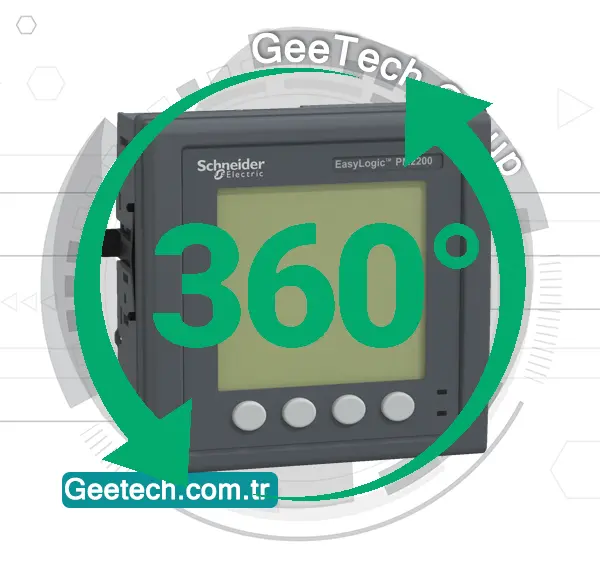
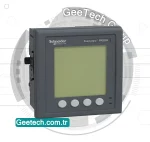
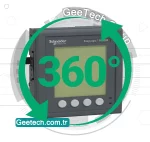
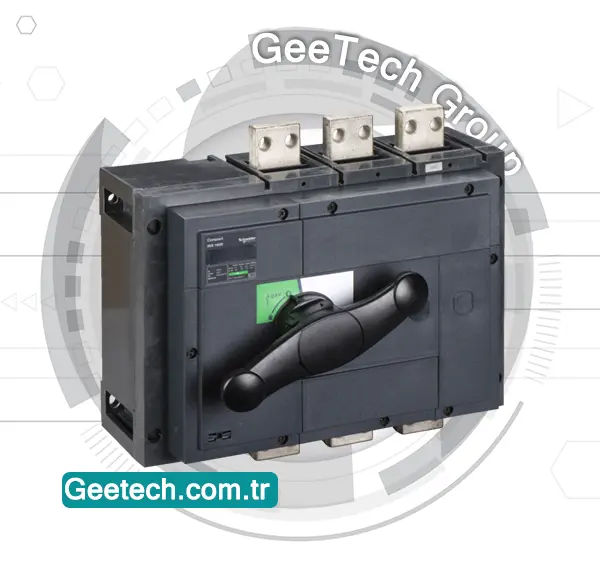
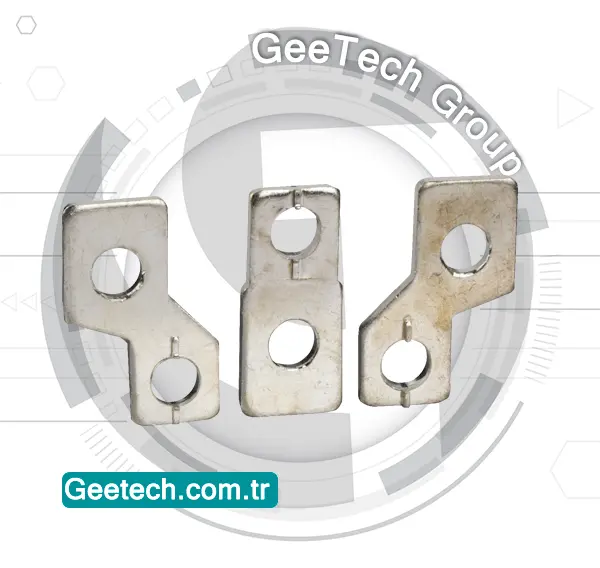
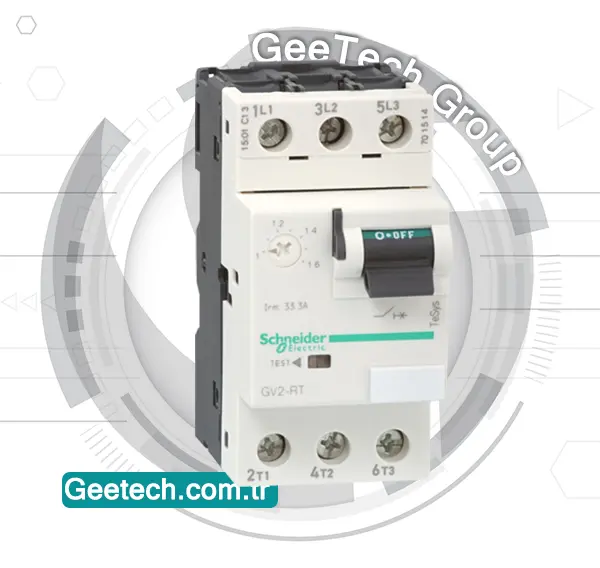
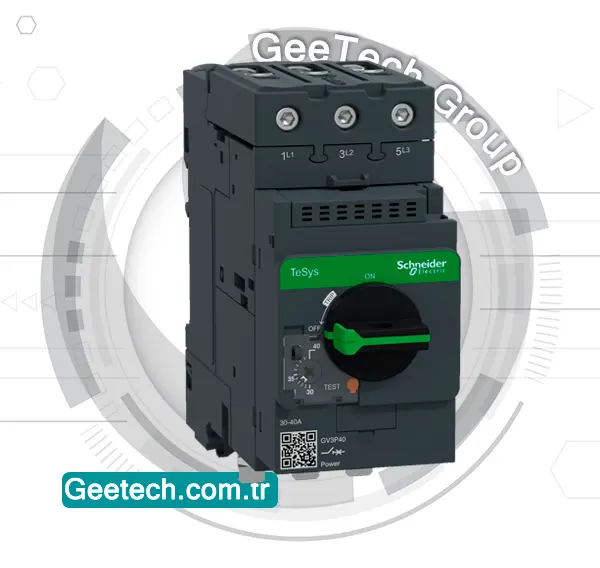

Değerlendirmeler
Henüz değerlendirme yapılmadı.